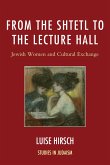1968 is symbolic in Italy of a whole decade of struggles by students, women, workers, intellectuals, and technicians. This extraordinary book, first published in Italy in 1988 as Autoritratto di gruppo, documents the intricate web of individual and communal experiences in the political movements of the 60s. Luisa Passerini, internationally known for her work in memory, oral history, and their intersections with social movements, sets out to rescue the forgotten memory of her generation and to give it literary status. Framed and illuminated by sessions of psychoanalysis, this absorbing narrative weaves episodes of Passerini's autobiography-including her involvement in the 1968 uprisings-oral histories of other participants, and Passerini's sociological observations. Passerini's book captures something that is, arguably, closer to lived history than anything we are accustomed to reading,writes Joan Wallach Scott in her foreword. It raises critical questions about how we reconstruct the past and vividly illustrates the forces that shaped a generation. As Passerini movingly shows, there was in those rebellions something that went further than rancor and taking sides: the idea of a new world and new human relationships. These hopes are given back to us through the Autobiography's contradictions and silences, in a recounting of events, emotions, and discoveries of the self and of others that constitute our recent history.
Hinweis: Dieser Artikel kann nur an eine deutsche Lieferadresse ausgeliefert werden.
Hinweis: Dieser Artikel kann nur an eine deutsche Lieferadresse ausgeliefert werden.








